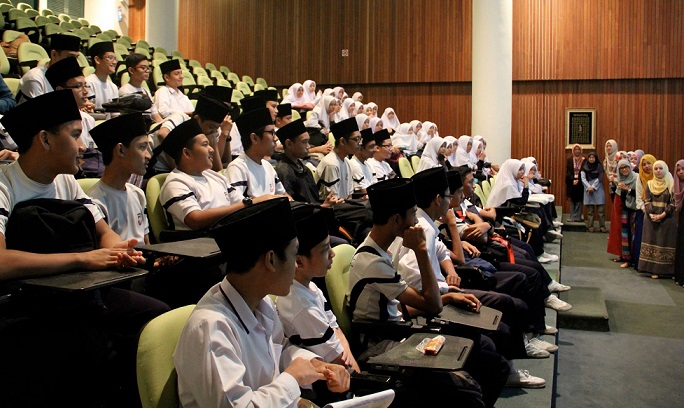Opinion: Sharia is probably not what you think it is
Some people are panicking about “sharia law.” In Britain, two parties have pledged to ban it, and a handful of states in the U.S. also passed laws geared at banning it from U.S. courts.
To the uninformed, for whom this term conjures up stereotypical images of bombings, beheadings and forced veiling, this might make sense. But that’s far from accurate.
Sharia — not “sharia law” — is an Arabic word that means “the path to water,” what Muslims consider to be a system of divinely revealed guidance. Sharia is a system of law in that it is a set of rules and practices meant for be conformed to in within daily life, but this does not necessarily imply that it is a system of government. Just as a Christian might call the Ten Commandments “God’s law” without demanding that governments ban coveting, Muslims can apply sharia to their own life without this having any political implications.
Real life is rarely as neat as the laws that are meant to rule it. Furthermore, the nature of Islamic scripture complicates efforts at its interpretation.
The Quran, which Muslims consider to be the word of God, is rich in metaphor. One verse explicitly acknowledges this, stating that it contains “verses basic and fundamental,” though “others are allegorical.” Separating the literal from the figurative can be a challenging task.
The hadith, or reports of the sayings and actions of the Islamic prophet Muhammad, were passed down from person to person for years before finally being collected and written down. Many Muslims still disagree on which hadith are truly authentic and which may have been forged or distorted in transmission, as well as on the role that the hadith should play in the religion.
Because of these difficulties, fiqh, or human interpretation of sharia, is an extraordinarily diverse field of study. There are many different schools of fiqh, each with its own perspective on what methods should be used to discern God’s will, as well as what topics — like how to pray and how much charity is obligatory — to give. Maryam K. Ansari, a Muslim lawyer, wrote in the Huffington Post that most Muslims do not concern themselves with the details because it is as complex as “a difficult-to-understand tax code.” Instead, Ansari says they focus on the central values of their religion, such as equality, freedom, and respect for human life, as well as on key practices such as fasting and prayer.
Much of the fear and controversy surrounding sharia has to do with hudud punishments, or harsh corporal punishments. For varying reasons, these are almost never carried out. First, there are so many restrictions on when they can actually be implemented, that doing so becomes almost impossible. Second, some argue that they were never called for in the first place, pointing to examples from early Islamic history and ambiguities in Arabic to support their case.
For example, Jamal Badawi, an author and speaker about Islam, argued in an article for the Fiqh Council of North America that phrases in the Quran such as “your task is only to exhort. You cannot compel,” “no coercion in matters of faith,” and “let him or her who wills, reject it,” definitively support the freedom to reject Islam. Badawi added that when the first Muslims lived in the city of Medina after leaving Mecca due to persecution, those who left Islam were not punished, but were instead allowed to return to Mecca. Logically, if Prophet Muhammad had wanted to kill them, he would not have let them leave the city, since you can’t kill someone who isn’t even in the same city as you.
Even Jabhat Fateh al-Sham, a fringe militant group that broke off from al-Qaeda and has now merged with several other groups, has banned hudud punishments. That’s how unpopular they are.
More relevant to the implementation of sharia is how it has explicitly provided a variety of rights to Islamic women and minorities that did not exist in the Western world until much later. For example, Islam has always granted women the right to own property, a right that did not exist in the United States until 1839. While sharia bans fraud and exploitative lending, white-collar crime still runs rampant, and payday lenders prey on the poor, sometimes charging interest rates over 7,000 percent. Charity is one of the five pillars of Islam, and a poll by ICM Research found that in Britain, Muslims donated more to charity on average than followers of other religions.
If you want to ban something, look past sensationalistic, oversimplified media reports and figure out what it actually is first. If you keep an open mind, you might be surprised to find that maybe instead of banning sharia, the U.S. might have something to learn from it.







